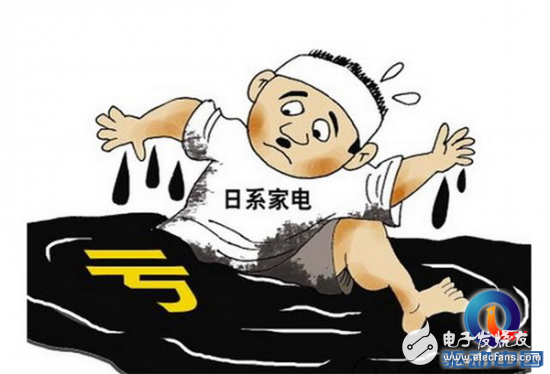The acquisition of Japanese home appliance giants by Chinese companies is no longer a big news. In 2011, Lenovo Group acquired Japan's NEC notebook business; Haier acquired Sanyo White Power. In 2016, Midea acquired Toshiba White Power; Foxconn acquired Sharp Japan. In 2017, Hisense took over Toshiba TV... There are countless examples. Obviously, in the context of Chinese home appliances singing high triumph, Japanese home appliance brands seem to usher in a big retreat.

However, according to the report of the actual domestic shipments of household appliances used by Japanese nationals released by Japan Motor Industry Association (JEMA) in 2017, the supply of Japanese white goods in 2017 reached 2.3479 trillion yen, a value not only increased from last year. 2.0%, but also created the highest level since 1997. On the one hand, Waterloo, a Japanese home appliance, and on the other, Japan’s home appliance shipments continue to grow. It’s really awkward to understand what it’s all about?
We all know that Japanese manufacturing companies have a paranoid pursuit of technology, often in order to increase the performance of products by 1%, and to invest 30% of the cost, so that the pace of innovation is slowing down, and this is destined to follow in the rapidly developing Internet era. The change in the market and the decline in competitiveness are also expected. In addition, the style of Japanese companies has always been conservative, the system is rigid, and the bloated large corporate diseases are widespread, which has led to a stereotyped stalemate in Japanese home appliance companies.
In fact, the reason why Japanese home appliance companies compete with Chinese and Korean manufacturers is definitely not "technical as good as people", but rather in the management of enterprises and concepts. This is absolutely the most important thing for Chinese companies that are accelerating the global layout. Chinese companies are committed to deep excavation by acquiring the Japanese home appliance giant and combining their global sales network with the deep technological precipitation of Japanese home appliance brands. Global Market.
In fact, although Japanese home appliances such as Samsung and Sharp have been tagged in China, smart Chinese merchants have not changed the “taste†of Japanese home appliances, whether it is localized operation or targeted innovation. Both are designed to achieve deep digging of local needs.
It should be pointed out that in 2017, in addition to the localized operation strategy, the Japanese market demand expansion is closely related to the demand for “striking policy last bus†before consumption tax increase and the growth of demand brought about by changes in consumer preferences. From the point of view of the hot-selling products in the market, energy-saving products and value-for-money products are very popular. For example, with the increase in time-saving appliances for dual-employee households, home appliances are more popular, large-capacity refrigerators and washing machines, and so on.
After a sustained market downturn, the Japanese white goods industry has set a record for the highest rebound in 20 years. This also seems to mean that excellent technical quality, coupled with appropriate marketing strategies, will certainly lead to new business opportunities and cakes.
24V Battery Pack ,Large Battery Pack,24 V Battery Pack,24V Lithium Ion Battery Pack
Zhejiang Casnovo Materials Co., Ltd. , https://www.casnovonewenergy.com
